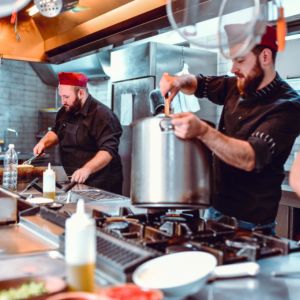

10% of India’s GDP is through the tourism industry. During the Pandemic, when India took a hit in the tourism and the hospitality industry, there were speculations of losses rounding up to 620 crores. 95% of India’s hotel room availability is through Unbranded budget hotels, guest houses, and Bread & Breakfasts’. Shutting down these for a longer duration not only impacts the overall economy but also displaces jobs. The added issue here is that even when Hotels did open their doors for people, it wasn’t as easy as switching on the lights and getting back to business. Amealio as a brand focuses on expanding the horizons of the F&B and hospitality industry and assimilating it with the latest voice tech and AI. While the second wave is yet to plateau, and the hotel industry is taking a hit for another consecutive year, there are only a few suggestions that we can make.
Operations:
The number one priority post Covid-19 should be on the health and safety of consumers, translating into sanitation and hygiene issues about the hotel. The idea here is to be able to provide tangible evidence of the hotel’s concern for health-related queries of the customers. There needs to be screening and checks instituted at the entrances for health purposes. The security at the doorstep checks customers for fever with a remote thermometer, keep hand sanitizers at the entrance and the reception, shower a light sanitizer mist, elevator lobbies and guest rooms. The staff should be multi-skilled with adequate knowledge of safety measures to be taken during these times and trained before they start operations. It is going to take time before the F&B and hospitality industry can go back to the regular staff numbers. All the staff members, including managers and janitorial crew, are advised to continue wearing double masks and surgical gloves to enhance confidence among the guests. From a marketing perspective, it is crucial to keep in touch with your loyal guests, especially in the domestic market domain, through social media and digital marketing during and after the lockdown. The hotels can also contribute to the coronavirus cause by paying the staff partially or helping in ways feasible for them.


The number one priority post Covid-19 should be on the health and safety of consumers, translating into sanitation and hygiene issues about the hotel. The idea here is to be able to provide tangible evidence of the hotel’s concern for health-related queries of the customers. There needs to be screening and checks instituted at the entrances for health purposes. The security at the doorstep checks customers for fever with a remote thermometer, keep hand sanitizers at the entrance and the reception, shower a light sanitizer mist, elevator lobbies and guest rooms. The staff should be multi-skilled with adequate knowledge of safety measures to be taken during these times and trained before they start operations. It is going to take time before the F&B and hospitality industry can go back to the regular staff numbers. All the staff members, including managers and janitorial crew, are advised to continue wearing double masks and surgical gloves to enhance confidence among the guests. From a marketing perspective, it is crucial to keep in touch with your loyal guests, especially in the domestic market domain, through social media and digital marketing during and after the lockdown. The hotels can also contribute to the coronavirus cause by paying the staff partially or helping in ways feasible for them.
Technology:
The second most important consideration is moving more towards AI and voice technology. Covid-19 has increased the need for technological use to allow the slightest contact among humans. Codes given on the guests’ mobile phones to self-check-in and open assigned rooms decrease physical contact and increase safety. Guest mobile apps connecting to all switches and buttons in the room help avoid touch and make it more convenient for them. The digital control can enable guests to control the room temperature, remote for the television, maintain the shower temperature, switch on lights, etc. Virtual menus on the restaurant’s TV displays, bars, and lobby helps avoid the risk of circulating physical menus around. Digital options for paying bills and food & beverage at stalls and giving out receipts like the ATMs further help strengthen the system. Mini-bar liquor options in the rooms that automatically bill the guest when bottles are withdrawn lead to even less physical contact. Dispensers in the floor Housekeeping store and self-service room amenities are a go-to option. These can be taken care of by the staff later on. Self-monitoring gadgets for oxygen levels, pulse rate, and fever can help control any casualty that might occur.
To sum it up, the F&B and Hospitality industry requires both caution and technology at their disposal to get back to where they were or scale up the businesses once this is over. Also, voice assistants and AI play a pivotal role in easing up business and making it more convenient for consumers.
